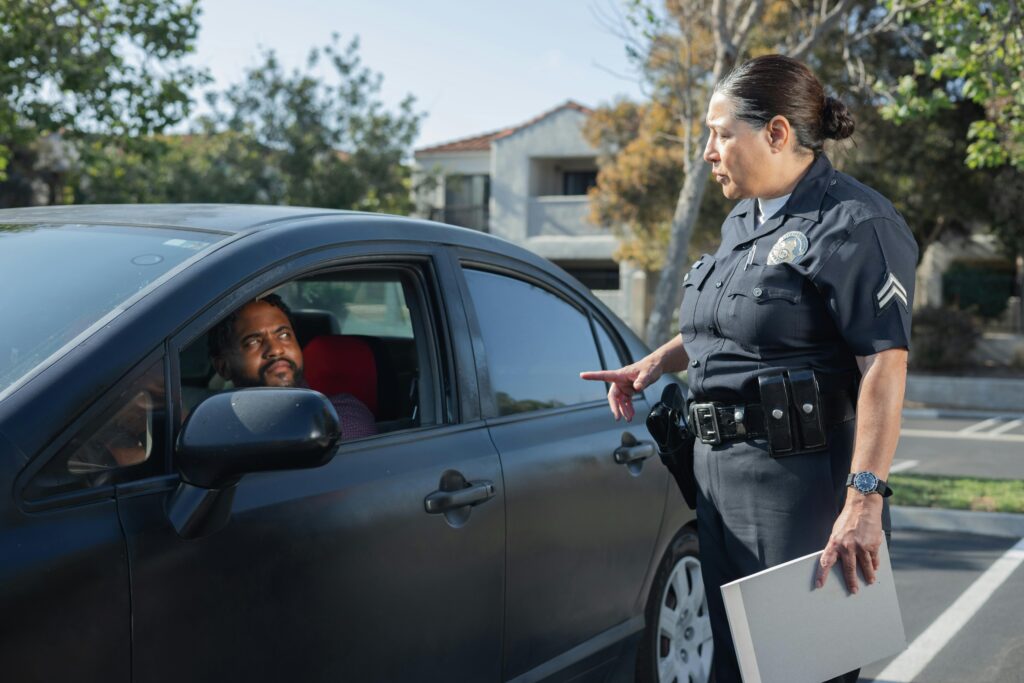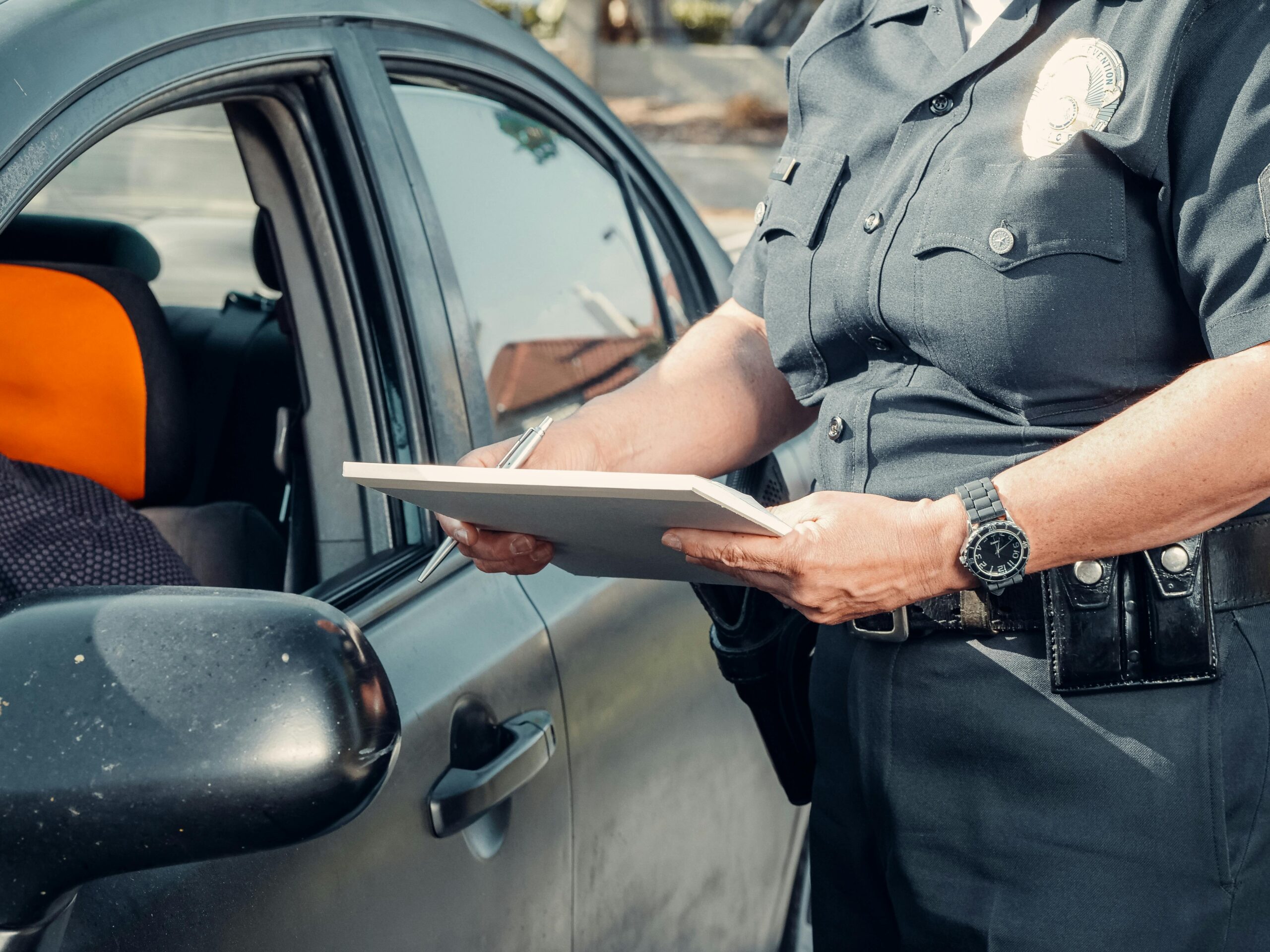Habitual speeding violations can lead to aggressive penalties, including hefty fines, license suspension, and even arrest. For repeat offenders, the consequences are more severe and can result in losing driving privileges.
For example, in California, under 22356 CVC, penalties for speeding on a freeway with a 70 mph limit are strict, aiming to deter excessive speeding.
Aggressive driving laws can be difficult to prosecute, yet they remain necessary for road safety. Some states impose harsher penalties than others, with fines varying significantly. In addition to financial penalties, repeat violations can lead to license suspension or even revocation.
Understanding the gravity of speeding, especially in habitual cases, underscores the importance of adhering to speed limits. This vigilance not only helps keep roads safe but also avoids the severe penalties associated with continuous violations.
Understanding Habitual Speeding

Habitual speeding involves repeatedly breaking speed limits, which can lead to strict penalties, including license revocation and heavy fines. This section will explore what constitutes habitual speeding, the laws governing it, and the consequences of repeated violations.
Definition of Habitual Speeding
Habitual speeding refers to the act of frequently exceeding speed limits over a specified period. In many regions, a driver is considered a habitual speeder after acquiring multiple speeding tickets within a set timeframe.
For example, in some states, accumulating 12 or more major or minor traffic violations in five years can lead to being labeled as a habitual traffic offender. This designation often results in severe penalties and stricter monitoring by traffic enforcement agencies.
Speeding Laws and Enforcement
Speeding laws vary by state but generally impose fines, points on the driver’s license, and potential jail time for severe violations. These laws aim to deter drivers from exceeding speed limits, promoting road safety.
Law enforcement agencies use various methods to catch speeders, including radar guns, speed cameras, and traffic stops. For habitual speeders, law enforcement may employ stricter measures such as increased patrols in high-risk areas and higher penalties for repeated offenses.
Consequences of Repeated Speeding Violations

Repeated speeding violations can lead to significant consequences. Habitual offenders may face escalating penalties, including hefty fines and extended license suspensions.
In states like Florida, habitual traffic offenders can have their driver’s license revoked for up to five years.
Additionally, if caught driving with a revoked license, they might face felony charges and potential jail time. Elevated insurance premiums and difficulty finding employment that requires driving are other common repercussions.
Penalties for Habitual Speeding
Habitual speeding can lead to severe penalties. These penalties include license suspension or revocation, increased fines and surcharges, mandatory driving classes, and higher insurance premiums. Each consequence helps to deter frequent offenders and promote road safety.
License Suspension and Revocation
Habitual speeding can result in repeated citations. These citations can lead to the suspension or revocation of the driver’s license. In some states, habitual offenders might face a suspension after just three speeding tickets within a year.
A license suspension means the driver is banned from driving for a specified period. In extreme cases, like excessive speeding or repeated offenses, the license could be revoked permanently. Losing driving privileges can severely impact daily life, including commuting to work and personal mobility.
Authorities impose these penalties to encourage better driving habits. It serves as a significant deterrent for those tempted to speed frequently.
Increased Fines and Surcharges
Fines for speeding tickets generally increase with each violation. For instance, a first-time offender might pay a small fine, but the penalties get much steeper for habitual offenders. Some states impose fines exceeding $1,000 for multiple speeding offenses.
Along with fines, surcharges may also apply. These extra fees are added to the base fine, increasing the total financial penalty. This approach hits repeat offenders harder, creating a stronger financial disincentive to speed.
High fines and surcharges aim to deter habitual speeding. They serve as a financial reminder of the importance of following speed limits.
Mandatory Driving Classes
Courts often mandate driving classes for individuals with frequent speeding violations. These classes educate drivers on safe driving practices and the dangers of speeding.
The classes might cover topics like the physics of speed, reaction times, and real-life consequences of speeding. Completing the course may be mandatory for regaining a suspended license.
These educational programs help habitual offenders understand the risks and promote safer driving habits in the future. By focusing on education, authorities aim to reduce repeat offenses.
Impacts on Insurance Premiums
Insurance companies closely monitor driving records. Habitual speeding violations can lead to significant increases in insurance premiums. Drivers with multiple speeding tickets are seen as high-risk and are charged accordingly.
For some, premiums might double or even triple. This can make car insurance unaffordable, which may deter repeated infractions. Higher premiums remain in place for several years, reflecting the long-term impact of habitual speeding.
Insurers use this method to manage risk. It also serves as a financial penalty that reinforces the importance of adhering to speed limits.
Countries With The Highest Penalties
If you are traveling, you should be aware of these incidents. There are certain places where they are very strict with their traffic rules. Finland is one of the countries which have recorded a penalty of $200,000.
This is calculated keeping in mind the total income of the person. This is why the Finnish businessman had to pay such a heavy fine. However, in a Scandinavian country, their minimum penalty is also a considerable one, $1600.
Canada takes second place, where it charged a penalty of $25,000 for speeding. In the UK, people pay an average amount of $100 for speeding. However, a few years back, a Briton paid $8,000 for a similar violation.
However, if you are traveling to the United States, the average amount would depend on the state where you are. For instance, when you are in Virginia, you might have to pay an amount close to $2,600 for speeding.
Germany and Portugal have low fines as compared to the countries mentioned above. They charge $630 and $1,900, respectively, for speeding.
Conclusion
Habitual speeding violations can lead to aggressive penalties, including higher fines, license suspension, and even revocation for repeat offenders. The severity of these consequences varies by state but remains a significant risk for those who frequently ignore speed limits.
Recognizing the dangers and legal repercussions of habitual speeding is important for maintaining safety on the roads.
Read Also:













